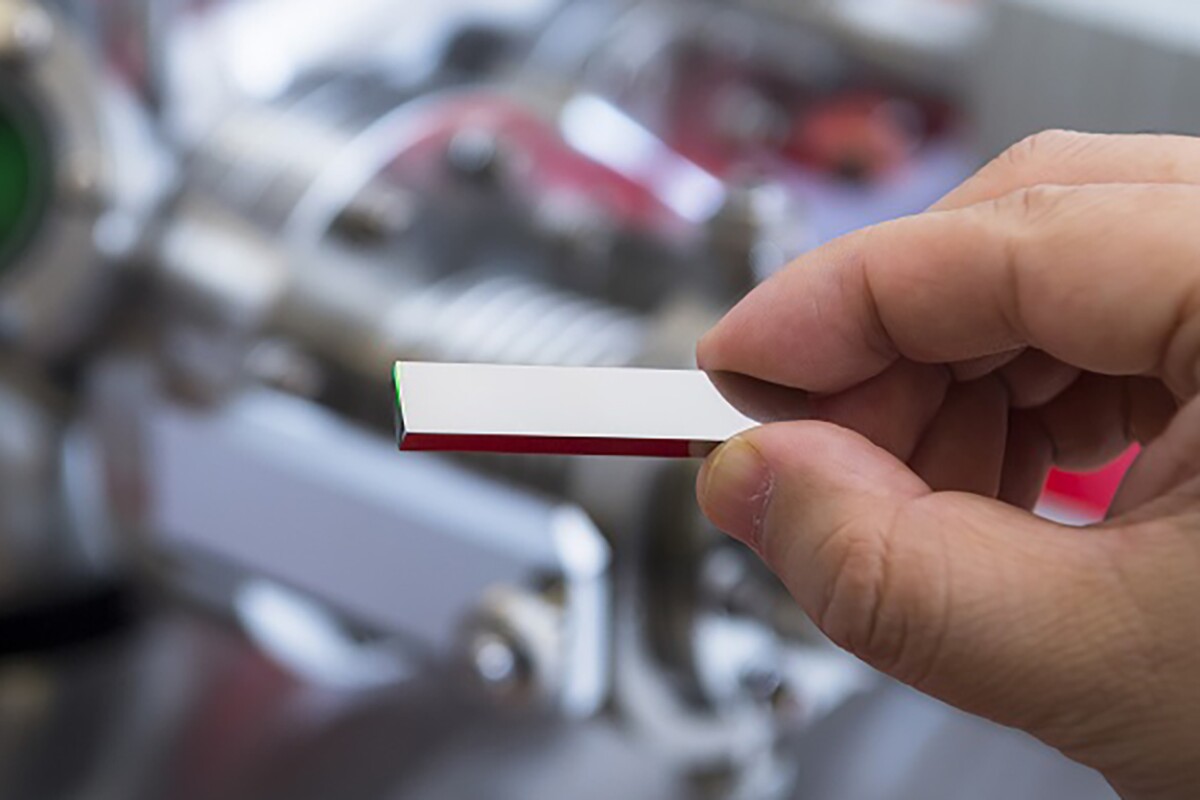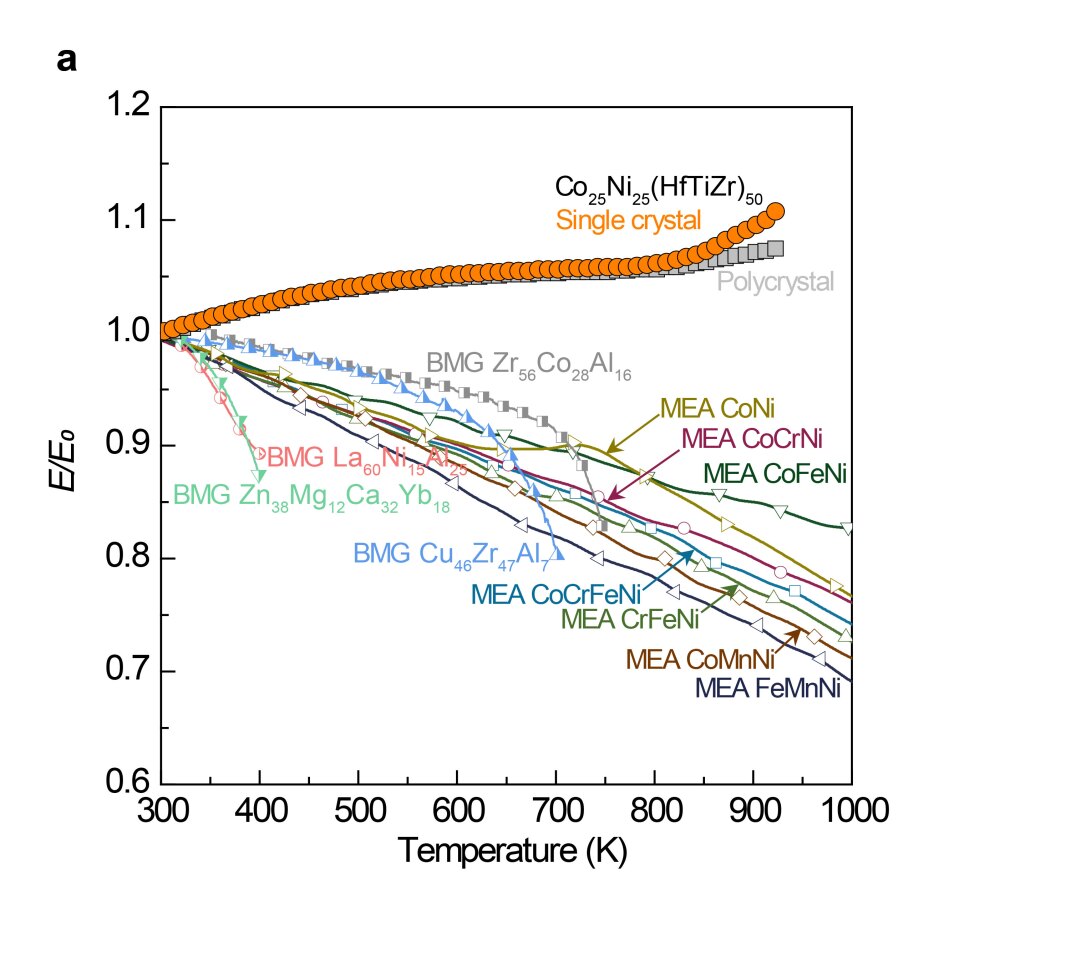
this is something new and opens up applications.
Again we can expect a long application development process. Yet it has now begun
Very important.
Super-elastic alloy is first known metal to get springier as it heats up
By Loz Blain
February 13, 2022
City University of Hong Kong researchers have accidentally discovered a first-of-its-kind alloy that retains its stiffness instead of softening as the temperature rises. Indeed, high-entropy Elinvar appears to get stiffer and springier as temperatures approach 1,000 K (727°C, 1,341 °F). No other known metals have been found to behave this way.
The elastic modulus of a material quantifies its resistance to elastic, or non-permanent deformation under stress. The higher the elastic modulus, the stiffer the material is and the harder it is to deform. Until now, it was thought that all metals soften as their temperature increases, due to thermal expansion.
But this chemically complex new alloy, arranged into a unique, highly-distorted lattice structure, doesn't follow that rule. Indeed, its elastic modulus appears to rise as temperatures get hotter. Where other metals start to soften, Co25Ni25(HfTiZr)50, or “the high-entropy Elinvar alloy" gets stiffer. The team has dubbed this "the Elinvar Effect."
The elastic modulus of the alloy doesn't soften when the temperature rises from 300K to 950K – indeed, it begins to increase Q.F. He et al
“When this alloy is heated to 1,000K, i.e. 726.85 °C, or even above," says Professor Yang Yong from CityU’s Department of Mechanical Engineering, "it is as stiff as, or even slightly stiffer than, it is at room temperature, and it expands without any notable phase transition. This changes our textbook knowledge, as metals usually soften when they expand under heating,” said Professor Yang.
In addition to the Elinvar effect, this metal also displays an elastic limit of about 2 percent at room temperature – that is to say, while you need to put a lot of energy in to deform it, it'll deform about twice as much as a conventional crystalline alloy before there's any permanent deformation. So it's extremely springy, capable of storing a large amount of elastic energy.
"Since elasticity does not dissipate energy and therefore will not generate heat, which can cause devices to malfunction, this super-elastic alloy will be useful in high-precision devices, such as watches and chronometers," says Professor Yang. "We know that the temperature ranges from 122°C to -232°C on the surface of the moon, for example. This alloy will remain strong and intact in an extreme environment, and so it would fit very well with future mechanical chronometers operating within a wide range of temperatures during space missions."
It'll be interesting to see where else this (now patented) material begins to show up.
You can see the extraordinary spring-back power of this high-entropy Elinvar alloy demonstrated in a room-temperature ball bearing drop test in the video below.
"Springy" high-entropy Elinvar alloy
The research is published in the journal Nature.

No comments:
Post a Comment